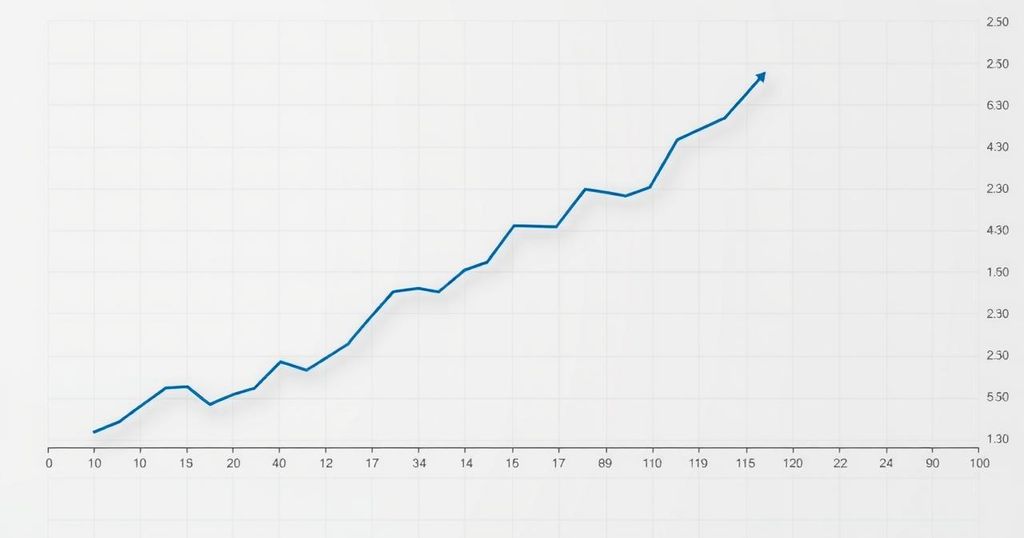South Africa’s 10-year bond yield reached 10.75%, the highest since June 2024, due to fiscal policy concerns and global uncertainties. The Government of National Unity failed to present its first budget, facing opposition to a VAT increase. Global conditions worsened with the withdrawal of US funding. Although economic growth avoided a recession, it remains weak.
The yield on South Africa’s 10-year government bond has reached 10.75%, marking the highest point since early June 2024. This increase is attributed to concerns regarding fiscal policy and uncertainties within the global economy. The recent performance in bond yields reflects broader economic conditions that have implications for investors and policymakers alike.
In a significant political event, South Africa’s Government of National Unity (GNU) did not present its first budget last month for the first time since the post-Apartheid era. This delay was catalyzed by opposition from the Democratic Alliance (DA) and other coalition members to a proposed 2% increase in the value-added tax (VAT) rate, highlighting the ongoing tensions within the coalition government.
The global backdrop has shifted dramatically since the initial delay of the budget. Factors include US President Donald Trump’s withdrawal of $1.4 billion in funding, compounded by rising trade tensions. Such changes have heightened scrutiny on South Africa’s economic policies and decisions.
Despite avoiding a technical recession in the last quarter of 2024, with a growth rate of 0.6%, South Africa’s economic growth remains insufficient to address deeper structural challenges. Analysts suggest that more rigorous measures are needed to stimulate sustainable growth in the face of rising bond yields and fiscal uncertainty.
In conclusion, South Africa’s 10-year bond yield has surged to a nine-month high driven by fiscal policy uncertainties and global economic challenges. The delay in presenting the budget, influenced by coalition opposition, and significant global shifts highlight the precarious nature of South Africa’s current economic environment. While the country has narrowly avoided a recession, persistent growth issues necessitate impactful policy interventions.
Original Source: www.tradingview.com




